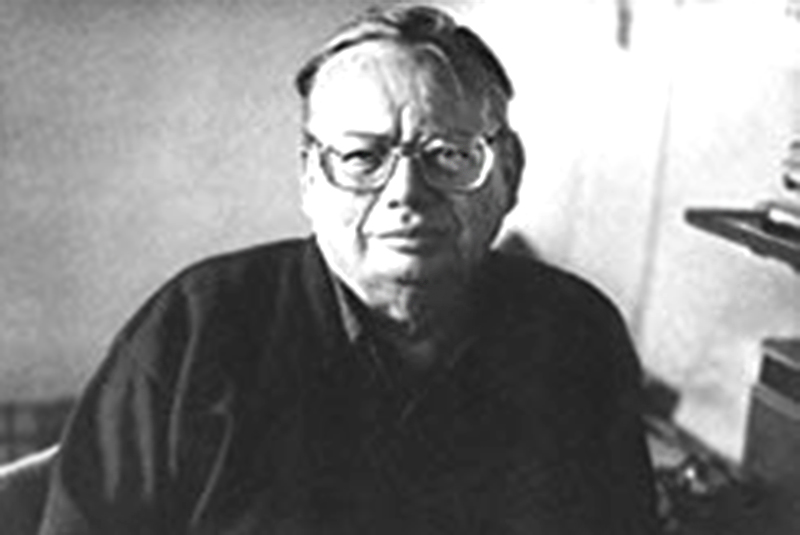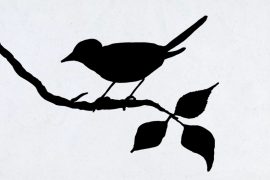“The name’s Bond—Ruskin Bond.” This would be followed by delighted peals of laughter as the one responsible for the trite joke would all but glow with pride. Looking back on it now, I don’t think we knew why we were laughing. Until we entered middle school, the only Bond most of my classmates knew was Ruskin Bond. And that warranted pathetic jokes made without knowing who or what we were referring to.
When I was six, my mother bought me a book titled, ‘Collected Short Stories‘, by Ruskin Bond. She gave it to me with barely disguised excitement, confident that her daughter would appreciate the book. I was intrigued by the colourful cover and opened it enthusiastically. Flipping through the pages, I was aghast at what I saw, or rather, at what I didn’t see – pictures! It was a pictureless book. I handed the book back to my mother and said – ‘I can’t read a book without pictures!’.
My mother laughs and tells anyone who will listen that I was furious with her for believing, even for a second, that I would read a book without pictures. What followed was months of coaxing, cajoling, and bribing to make me read the book.
My journey of reading started with Ruskin Bond, and I now seek refuge in books (with the vast majority of them being pictureless). This is perhaps why I was eager to start the New Year with his most recent book: ‘The Golden Years’. Published on his 89th birthday, it is a collection of 60 witty and thought-provoking essays on appreciating life.
In an interview with Harper Collins, Bond says he intended the book to be a self-help book of sorts, to expose the young to how it feels to grow older and to make the process of ageing less intimidating for others. He believes that it is in one’s seventies and eighties (the golden years, as he calls them) that people become ‘connoisseurs of life.’ They begin to think for themselves and often choose to turn away from all the bad in the world and focus on beauty instead.
Be grateful for each day, he says, be it sunny or cloudy or rainy. With wars and feuds raging in the world, he asks us to learn to appreciate what we have while trying to help others in whichever way we can, no matter how inconsequential it may seem.
He says the secret to happiness is to ‘look at everything as though you are looking at it for the last time.’ Doing so would not only make our lives happier but also change the way we approach each situation. We would spend a little bit longer on all our chores and do them more willingly. After all, the more willing you are to do something, the better you do it. But not looking at things as though for the first time because a novel experience does not hold as much sentiment as an old and familiar one does.
The book talks about his shortcomings, too – he dedicates a whole chapter to how difficult boiling an egg is, as is making an omelette and a roti. All three of those are arts that require skill, precision, and accuracy. After all, your timing needs to be perfect to make all three, much like many things in life.
He reminisces about his childhood much in the way his grandparents do. He talks about his father, who passed away in his forties, leaving an indelible mark on his son’s life. His grandmother, whose pearls of wisdom about food, made her seem quite miserly and frugal until he realised that the rough exterior hid (or rather protected) a soft and kind heart. His days in school and how he spent his early adulthood.
His walks have become an integral part of his life now. A grumble that today’s youth no longer wake up with the birds, missing the early morning sun rays (‘the best hours of their lives’.)
The book is without the complaints that are generally associated with ageing. Instead, he writes about ‘arriving at a better appreciation of all that is worthwhile in our planet and in this world of our making.’ It urges us to enjoy the little pleasures in life, which we often ignore. His optimism and buoyancy are heartening as he narrates stories of kindness and compassion in simple prose, earnestly pleading his readers to be warmhearted. His vivid writing makes the book seem to have been experienced rather than read.
In a world where being forever discontent seems to be in vogue, Ruskin Bond talks about ‘the many joys of living a good long life,’ and refreshingly so.
-30-
Copyright©Madras Courier, All Rights Reserved. You may share using our article tools. Please don't cut articles from madrascourier.com and redistribute by email, post to the web, mobile phone or social media.Please send in your feed back and comments to editor@madrascourier.com











